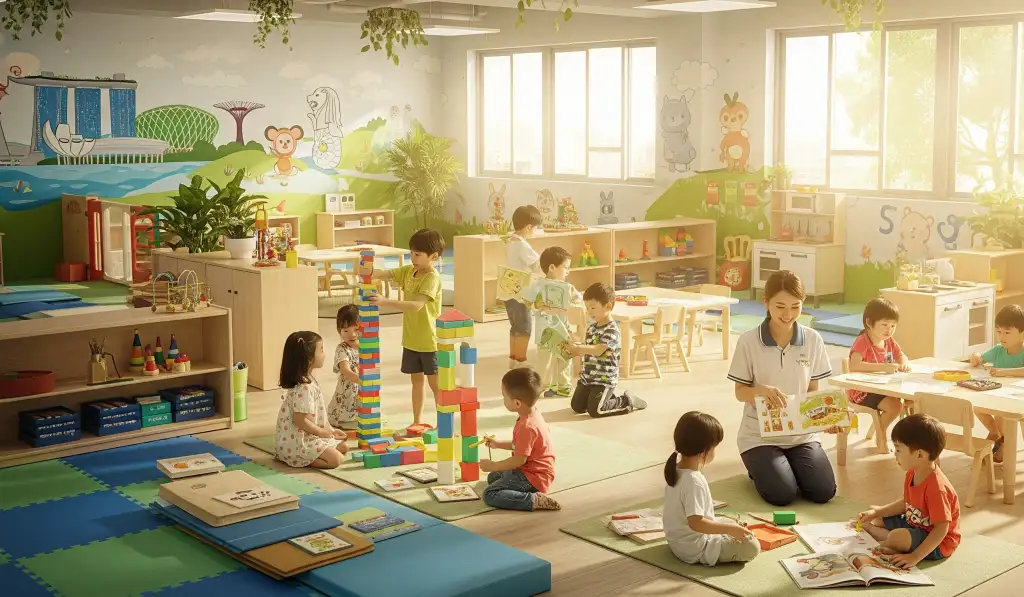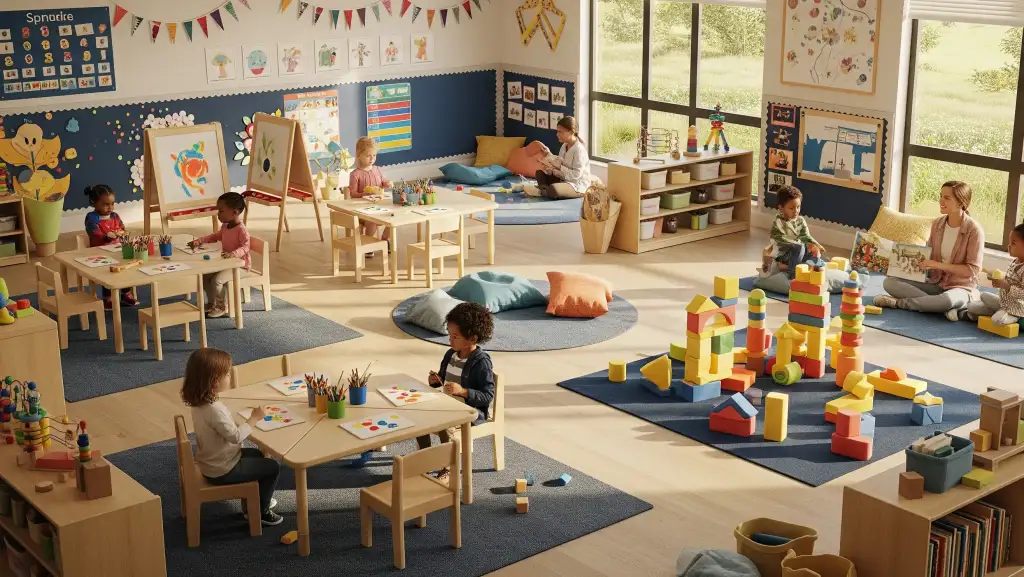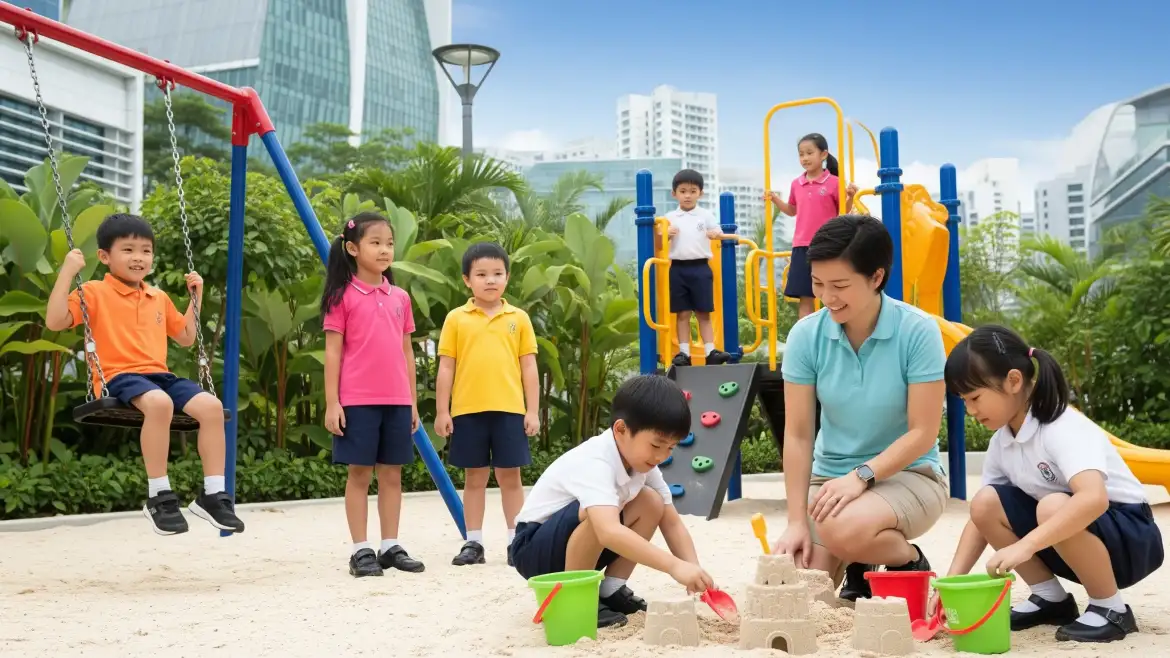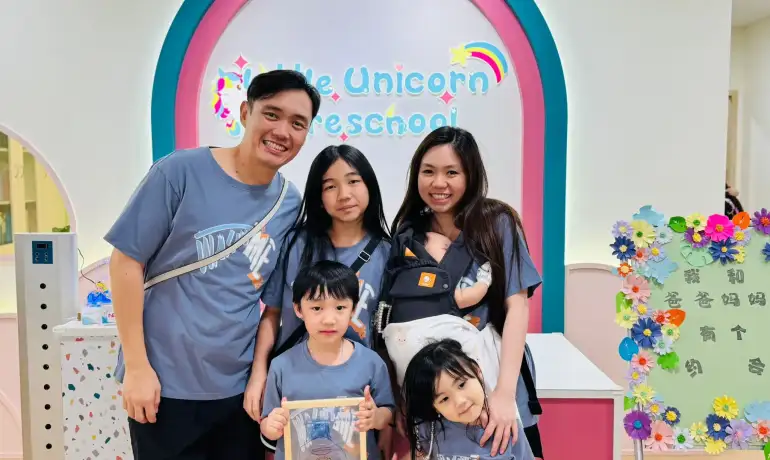Finding the right private preschool Singapore families can count on is more than just browsing top-10 lists. While glossy brochures and curated articles offer surface-level overviews, many skip the deeper questions parents should ask—questions that could truly affect your child’s happiness, development, and daily routine.
If you’re starting your preschool journey, don’t worry—we’ve compiled 10 often-overlooked insights that will help you make a smart, confident choice. Whether you’re planning ahead or feeling overwhelmed by too many options, this guide offers clarity.
1. Understand What You’re Paying For: Fees vs. Value
Private preschool Singapore fees can range from $800 to over $2,500 per month. But a higher price doesn’t always guarantee better quality. Some preschools offer all-inclusive packages—meals, enrichment classes, field trips—while others charge extra for everything beyond basic care.
Make sure you:
- Ask for a detailed fee structure.
- Clarify what’s included (e.g. Mandarin, music, transportation).
- Compare what’s offered at each price point.
Looking for value—not just prestige—is a smart first step.

2. Go Beyond the Brochure: Listen to Real Parents
Most preschools look great on paper. But real insights come from parents whose kids have attended the school.
Try:
- Checking Google and Facebook reviews.
- Joining parenting groups on Facebook or forums like KiasuParents.
- Asking the school if they can connect you with a current parent.
A private preschool Singapore worth considering should welcome transparency and parent feedback.
3. Location Affects More Than Convenience
It’s tempting to choose a preschool near your office or home, but don’t overlook how location affects price, availability, and stress.
Questions to consider:
- Will the daily commute work with your routine?
- Is there easy access to parking or public transport?
- Are schools in central locations much pricier?
Remember, the best private preschool Singapore options should complement your lifestyle—not complicate it.
4. Don’t Ignore the Waitlist
Popular schools often have long waitlists. Some parents register up to 18 months in advance, especially for toddler or nursery-level slots.
Tips:
- Ask about current and future intake schedules.
- Check if they give priority to siblings.
- Prepare backup options in case your top choice is full.
For expert tips on navigating this process, explore this helpful preschool search portal that many parents rely on.
5. Special Educational Needs? Ask Early.
If your child needs additional support—be it for speech, learning, or behaviour—it’s important to know if a preschool is SEN-friendly.
Ask about:
- Staff training in inclusive practices.
- Individualised support plans.
- In-house specialists or external therapy partnerships.
Not every private preschool Singapore caters to special needs, so advocate early and confidently.
6. Flexible Schedules Help Working Families
For many working parents, schedule flexibility is essential—not optional. While some preschools close early or operate only on half-day models, others offer after-school care or holiday programmes.
Before enrolling, check:
- Are both half-day and full-day options available?
- What time does the centre open and close?
- Do they stay open during school holidays?
A flexible private preschool Singapore allows parents to manage work and life without added stress.
7. Is Technology Integrated (or Overused)?
Modern preschools vary widely in their use of technology. While some integrate digital tools thoughtfully, others may rely too heavily on screen time.
Things to explore:
- Do they use iPads or smart boards in class?
- Is there a balance between tech and hands-on learning?
- Are STEM concepts part of the curriculum?
A forward-thinking private preschool Singapore should enhance—not replace—learning with tech tools.
8. Match Curriculum with Your Long-Term Plans
Some preschools prepare children for local MOE primary schools, while others are aligned with international systems like IB or British-based education.
Know your goals:
- Want your child in a local school? Look for strong academics and bilingual exposure.
- Prefer international schools? Reggio Emilia or Montessori might be better fits.
Your ideal private preschool Singapore should be more than just well-rated—it should prepare your child for their next educational step.
9. Nutrition and Meal Planning Matter
Meals are often overlooked but play a huge role in a child’s energy and focus.
Ask about:
- Whether meals are provided daily.
- Nutritional standards—halal, vegetarian, allergen-free options.
- How the school manages allergies or food sensitivities.
A great private preschool Singapore should treat nutrition as part of learning and care, not an afterthought.
10. Always Visit: Trial Classes & Open Houses Are Key
Never enrol without visiting. Trial classes or open houses help you assess the environment, observe teacher-child interactions, and gauge your child’s comfort level.
When visiting:
- Take note of hygiene, safety, and classroom energy.
- Ask questions about daily routines and discipline style.
- Watch how teachers respond to children in real time.
Want an inspiring starting point? This must-visit preschool Singapore has received rave reviews from parents just like you.

Frequently Asked Questions (FAQ)
1. What age should my child start preschool?
Most private preschools in Singapore accept children from 18 months to 2 years old, starting with toddler or playgroup levels.
2. What’s the average cost of private preschool Singapore options?
Expect to pay between $800–$2,500/month, depending on location, curriculum, and duration (half-day vs. full-day).
3. Do private preschools offer subsidies?
Most do not fall under government subsidy schemes, though some offer sibling discounts or internal promotions.
4. How do I decide between local and international curriculums?
It depends on your child’s primary school path. Local-focused schools emphasize academic readiness, while international preschools prioritize creativity, independence, and global exposure.
5. What should I look for during a trial class?
Observe teacher-child interaction, classroom flow, cleanliness, and how your child reacts. Don’t be afraid to ask specific questions—your instincts matter.
Final Thoughts
Choosing a private preschool Singapore that aligns with your values, lifestyle, and child’s needs is a big decision—but it doesn’t have to be overwhelming. By focusing on real-life priorities like flexibility, curriculum fit, parent reviews, and learning environment, you’ll find a place that feels just right.
If you’re still unsure where to begin, let us help.
Explore a preschool that blends bilingual education, child-led learning, and real care.
Contact Little Unicorn Preschool to schedule a visit or speak with our friendly team today at littleunicornpreschool.com.




